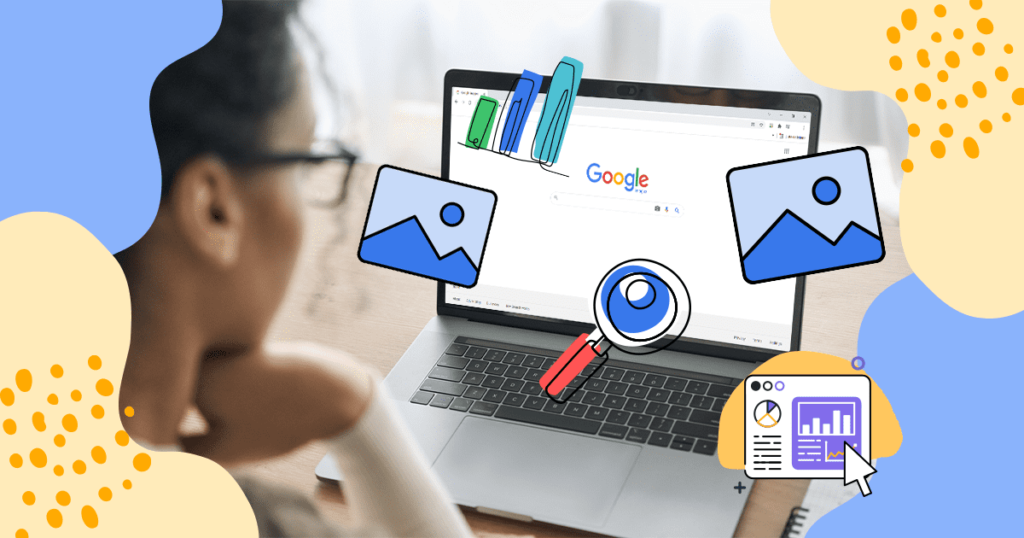Back in April 2022, the headline few wanted to see blared from Search Engine Journal: “Google Says AI Generated Content Is Against Guidelines.”
John Mueller, Webmaster Trends Analyst at Google, was quoted in the article saying that AI-written content is considered to be automatically generated content, which is treated as spam. He also added that using AI-written content could incur a manual penalty from Google.
Given that content tools such as Jasper and Copy.AI were increasing in both quality and popularity at the time, naturally, the article caused quite a stir.
People began to worry about their own use of AI tools and ask a lot of questions, such as “Will Google penalize AI content?” and “Does AI content hurt my SEO?”
Luckily, Google has updated its stance on AI tools since then, but you still need to know what you can and can’t do when using them.
In this article, we’re going to cover the differences between AI content and automatically generated content, what Google really thinks about AI content, and how you can safely use AI blogging software and other content tools without Google clamping down on you.
Interactive Ebook: The impact of Artificial Intelligence on Content Marketing
- AI Content Vs. Automatically Generated Content
- Can Google Detect and Penalize AI Content?
- How To Use AI Tools Without Affecting SEO
- Wrap-Up
Download this post by entering your email below
AI Content Vs. Automatically Generated Content
Given that AI content is content automatically generated by software, you’d think that it would have to be defined as automatically generated content according to Google.
But Google has now specified what it means by “automatically generated content” and clarified what the problem is with it. Google is now quite clear that AI content is not against its guidelines.
When generating AI content, although it’s done by software, a human is involved by inputting prompts to guide the AI and generate relevant and useful output.
You can add and refine prompts as much as you like until you get the content you want. You can then go further and check it for accuracy, grammar, spelling, and punctuation, and go through the content to rewrite it and produce something unique.
Automatically generated content, on the other hand, is content scraped from the web, cobbled together, or content that doesn’t mean anything created just to include keywords. There’s no human involvement there.
Google’s quality-first approach
The biggest difference between the two is that automatically generated content is generally used in an attempt to fool the search engines and rank higher, even for content that’s extremely poor and of little use to humans.
It’s created for the search engines alone to try and get results, and not to please or assist humans.
Whereas AI content, when used ethically, can be high quality and highly relevant to its audience. It is created for humans first, rather than the search engines, which is what Google wants to see.
In fact, Google’s AI content guidelines now state that it is “Rewarding high-quality content, however it is produced.”
You still need to be careful with AI-generated content, however.
Google is not giving you blanket permission to generate poor-quality content with these tools just for the purpose of tricking the search engines into ranking you higher. The focus absolutely must be on quality and relevance.
Google states that it “aims to reward original, high-quality content that demonstrates qualities of what we call E-E-A-T: expertise, experience, authoritativeness, and trustworthiness.”
Keep those qualities in mind, and you should be fine when using AI-generated content.
How is automatically generated content against Google’s Webmaster Guidelines?
If you were around in the earlier days of the internet, no doubt you came across many pages of complete nonsense that didn’t help you find what you were looking for at all.
These pages were automatically generated around particular keywords, purely to gain higher rankings in the search results. They made no sense to anyone, they didn’t answer your search query, and Google absolutely considered them to be spam.
Other types of automatically generated content include content scraping, machine-translated content with no human checks on the quality, content spinning, and combining content from different places, including RSS feeds, to create a new page.
All of these are against Google’s Webmaster Guidelines because they’re generated to trick higher rankings out of the search engines rather than earn them by producing quality content that focuses on what the searcher is looking for.
These automatically generated pages aren’t designed for humans first, or even at all. They only exist to put keywords in front of web crawlers to try to get higher listings.
Given Google’s clear aim to provide the best possible answers, with the highest quality and relevance to its searchers, naturally, this sort of content is against the guidelines and will be penalized.

Can Google Detect and Penalize AI Content?
Back in April 2022, Google’s John Mueller was asked if Google can detect AI content. All he could say was, “I can’t claim that. But for us, if we see that something is automatically generated, then the webspam team can definitely take action on that.”
The quality of AI-generated content can be great and it’s getting better. While there are AI detectors available, it could well become more and more difficult to detect whether the content was written by AI or not.
If Google’s team can’t detect it, they can’t penalize it.
Though detectors are also getting better, it isn’t beyond the realm of possibility that Google will be able to detect AI content at some point. As always, when it comes to SEO, you always need to keep up with the latest developments and updates from search engines.
How Does Google Penalize Automatically Generated Content?
In Google’s guidelines, the company makes it clear that, whether it’s poor-quality content from automatically generated content or AI, it isn’t seen as a new challenge.
Google states that the company has “been tackling poor quality content created both by humans and automation for years.”
Google does have existing systems in place, including SpamBrain, to help analyze patterns and content and track down poor-quality content and spam.
There is some helpful information about how Google adjusts rankings, depending on a number of factors, in its Ranking Systems Guide.
Google will certainly lower rankings on any low-quality content and may remove listings altogether.
How To Use AI Tools Without Affecting SEO
We quoted Google’s E-E-A-T (expertise, experience, authoritativeness, and trustworthiness) guidelines for content earlier, but if you keep in mind what Google’s crawlers are looking for, you really can’t go wrong whether you use AI to generate your content or not.
However, we do have some tips on how best to use AI content creation tools in your content marketing:
1. Use AI for inspiration
AI tools are incredible for generating ideas, coming up with marketing hooks, blog titles, taglines, and more.
You can use AI as much as you like to get ideas that you write yourself or hire a professional writer to create for you. You’ll never get in trouble with Google for using these tools purely for inspiration.
2. Outline your content
AI content tools can produce excellent outlines for blog posts, articles, white papers, ebooks, and indeed anything else you want to write.
Again, take the outline and either hire a professional writer to complete the project or write it yourself if you want to.
Using AI as a starting point is an excellent way to speed up your content creation without tripping over Google’s guidelines.
![How to Use AI Writing Software in Your Content Process [Sponsored]](https://contentmarketinginstitute.com/wp-content/uploads/2022/08/CoWrite-blog-builder-outline-600x603.png)
3. Change it up
You can use an AI content generator to write your content for you. However, you’ll create a far better impression if you or your writing professional then goes over it to make it your own.
Ensure you’ve fact-checked, proofread, and done a grammar check. Check for plagiarism in case the generator has drawn from previously published work.
Then add in your own references, statistics, stories, and anything else that will make your content unique.
Read through the whole thing for flow, clarity, and tone, and ensure it sounds like your brand voice and not like a robot wrote it.
This does increase work, but short of writing from scratch entirely, this is the closest you can get to using AI but still managing to generate something unique.
4. Bear your audience in mind
Your content must be helpful to your audience and answer what they might be searching for. As long as you’re writing to please your audience first and the search engines second, then you should stay well out of trouble.
5. Make sure you answer the question
You can find out what questions your audience is asking by looking at sites like Answer the Public and Quora. Check your website and social media statistics to see what your most-asked questions are.
Then work your way through and answer them thoroughly with all the expertise and know-how you have. As long as your content is well-written and genuinely useful, then you’re on the right side of Google’s guidelines.
6. Keep up to date with the search engine guidelines
Search engines are constantly looking to improve and to deliver better results to their users. You need to stay on top of any new developments, particularly around the use of AI, to be fully confident that you are doing things correctly.
Google isn’t coming for anyone who wants to use AI to enhance their content creation abilities and to be more efficient. In fact, Google spells out that it is targeting “spammy automatically generated content.”
It’s perfectly possible to use artificial intelligence when creating your content and when looking to find ideas and professional writers to assist you.
Wrap-Up
Will Google penalize AI content? Not if you do it right.
If you want to ensure you comply with Google’s Webmaster Guidelines, then why not hand over your content creation to the professionals at Rock Content?
You can use Content Cloud, our all-in-one solution for your content marketing, that uses AI features wisely and securely to boost content creation without damaging SEO.
Find the perfect writers for your brand with Writer Access, collaborate with your team with Studio, increase your conversions with Ion, and gain visibility by publishing your content to Stage, our WordPress site hosting and management service.
Wherever you are in your content marketing journey, Rock Content can help.








